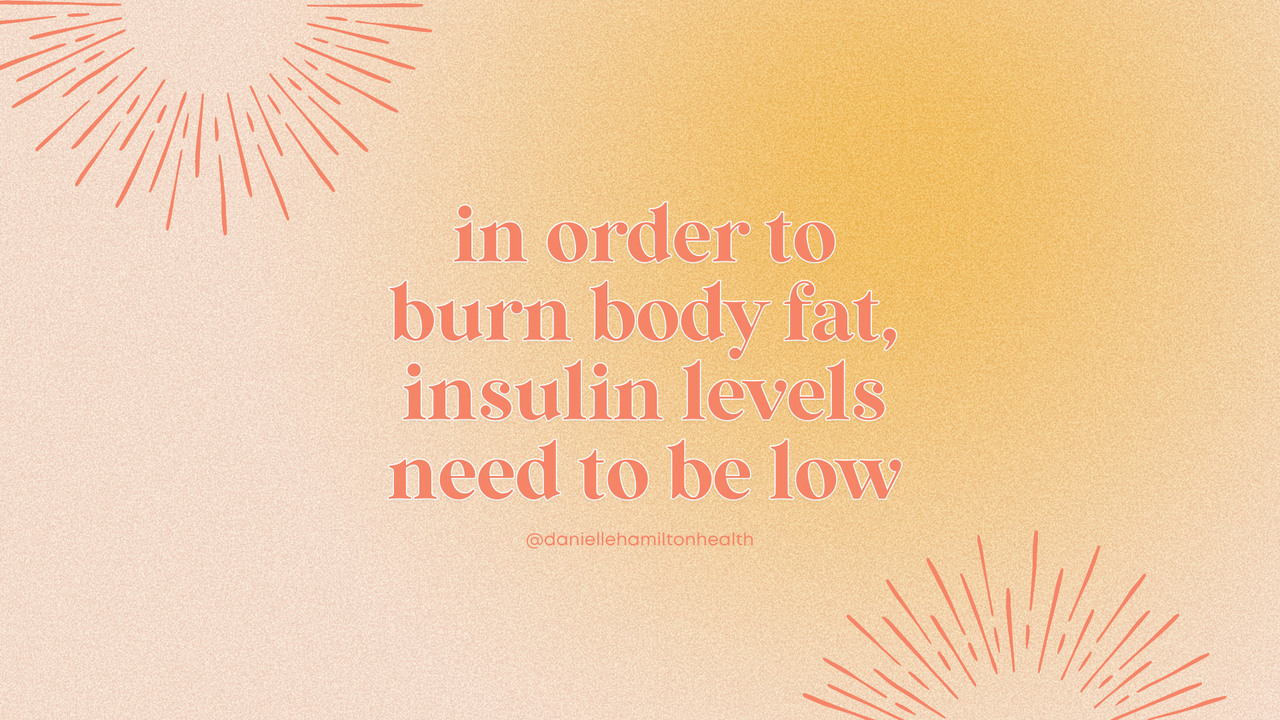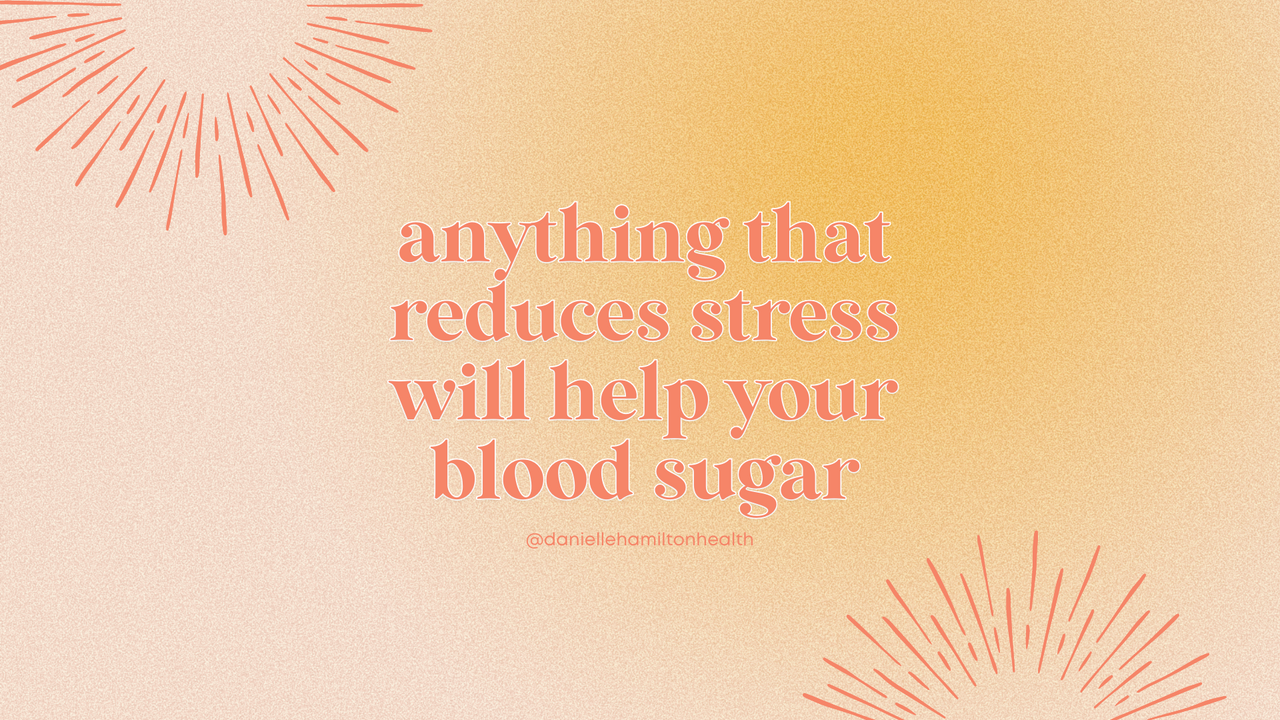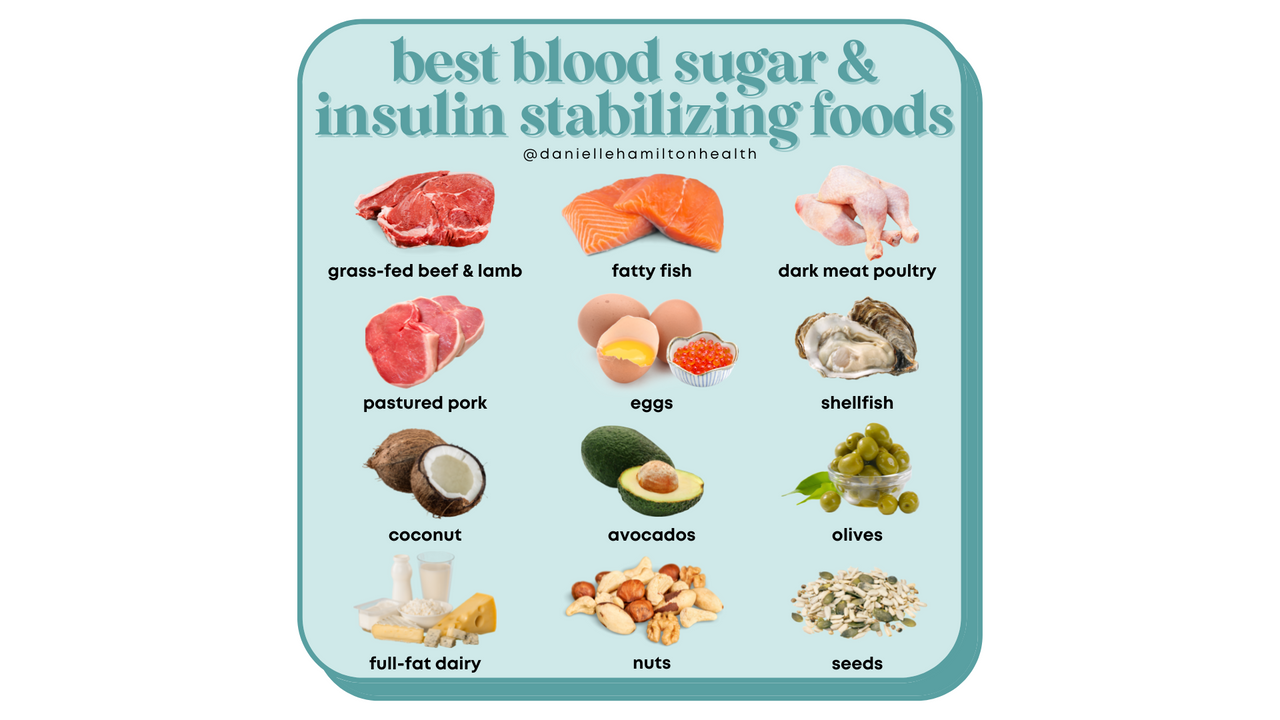The REAL truth About Blood Sugar!

Our blood sugar controls how we feel every second of the day so it’s something REALLY important to get right if you want to feel great!
Our blood sugar also has HUGE impacts on our long term health as well!
Blood sugar affects every cell, organ, and process in our bodies so it has far reaching effects on every aspect of our health.
And this is why the symptoms of blood sugar issues are so broad!
If your blood sugar isn’t working for you, it’s working against you and can lead to so many unwanted side effects like the ones listed in the graphic (and SO many more!!)
🥳 Fortunately my signature program is coming back so you can learn to master your blood sugar to start feeling great again! 🙌
👉 BLOOD SUGAR MASTERY is the ultimate program to control your blood sugar so it stops controlling you.
My past students have experienced incredible changes and now you can too!!
I'm thrilled to announce that the waitlist is OFFICIALLY OPEN!
See you inside 😁
Getting All Of Your Energy From Carbs? You'll Want to Read This!

I don't know who needs to hear this but carbs aren’t the only way to get energy. 🔥
I can’t tell you how many times I hear “but if I take out fruit and oats and rice, how will I get energy?!”
Easy… from FAT!
Fat is a long lasting energy source that burns low and slow so it keeps your blood sugar stable and keeps you satiated for hours. Fats are like the logs in a fire. 🪵 Carbs on the other hand are quick sources of fuel. They’re like the kindling.
They burn hot and fast, raising your blood sugar, which then causes a big release of insulin. The insulin takes the sugar out of the blood and puts it into the cells of the body to store or use for energy.
Then we are left with low blood sugar which makes us feel hungry again because we have just used up our energy.
Carbs = energy for a short time (which means you need to eat more often = terrible for blood sugar)
Fats = stable energy for long periods (don’t need to eat often = great for blood sugar)
Of course I realize most of the time we eat a combi...
Find Out Which Foods Are The Worst For Blood Sugar Levels!

Wondering what kind of things we study in Blood Sugar Mastery?
In module 1️⃣ we take a deep dive into which foods are bad for blood sugar, which ones to focus on, and which ones to slowly start reducing.
The best foods for our blood sugar are those with fats &/or protein.
Fat has almost no impact on our blood sugar & insulin levels.
Think of fat as like a 🪵 on a 🔥. It burns low & slow providing long lasting energy.
Protein has a small effect on blood sugar & insulin and that effect is lessened when the protein is eaten with a lot of fat.
e.g., A fatty ribeye steak won’t spike you as much as a chicken breast because of the fats.
That’s why when it comes to stable blood sugar, I always recommend “fatty proteins” like beef, eggs, salmon, etc.
⚠️ Some of the worst offenders for blood sugar are refined sugars, flour & vegetable oils.
Vegetable oils, like oils used for frying, used at restaurants, & those used in most processed foods, inflame insulin receptors causing insulin resistance and blood sug...
Wondering Which Foods To Limit When Improving Blood Sugar Levels?

If you’re eating a diet with many real, whole foods but are still struggling with blood sugar issues like I was, these are some foods to look at.
What do all these foods have in common?? They will all spike your blood sugar.
It can be hard to look at a food we have looked at as “healthy” our whole lives and realize that it might not be the best food for us right now. But it’s so important.
I was eating a paleo diet with all real foods when I developed Insulin Resistance and PCOS.
I temporarily cut out these foods, added more healthy fats and voilà.. good bye IR & PCOS.
The good news is that after some time, I was able to start adding back in these foods in smaller quantities with no change in symptoms and without my PCOS or IR returning.
✨ We need to get rid of all or nothing thinking and be more flexible so we can learn when to dial things up and down. ✨
When I say “limit” that might mean NONE of these foods for some time and for others, a small portion might be fine and not affect blood sug...
Looking to Balance Your Blood Sugar Levels?

This week in Blood Sugar Mastery we are reviewing strategies for more balanced blood sugar.
One of the biggest game changers in helping me reduce my sugar cravings, have more energy and better hormones was having balanced blood sugar.
This essentially means reducing big spikes and big crashes. We want the blood sugar to only gently rise after a meal (or not at all), and gently come back down to baseline.
This helps us have reduced cravings, better energy levels, better sleep, better skin, better hormone balance, and so much more.
These are some of my favorite hacks for reducing blood sugar spikes:
1️⃣ Have a tbsp of ACV (in some water) before meals. Add cinnamon for a better taste! 😉
2️⃣ Eat fat, protein (& fiber in the form of green veggies if not carnivore) before carbs at meals. This will slow the glucose response.
3️⃣ Avoid eating a big amount of protein with no fat as this may convert to glucose and spike your sugar! This includes lean protein (like chicken breast, egg white...
Ready To Support Your Gallbladder?

As you know, FAT is your blood sugar’s best friend.
In order to get the blood sugar-stabilizing benefits of fats, we need to be able to break them down and absorb them.
I’m order to do that we need to support our liver and gallbladder to make good bile.
If bile isn’t thin and free flowing, it won’t do its job of breaking down fats into their usable forms, fatty acids.
Fats actually have no benefit to us unless we can break them down and absorb them.
Undigested fats actually become inflammatory for the body and can wreak havoc on the digestive system.
Focusing on these foods can help to thin out your bile so that it is free flowing and can do its job better.
This is only one piece of the puzzle but a great place to start.
Another nutrient that also really helps is choline which is found in high amounts in egg yolks.
Source: @drjockers
Don't forget to share this blog with a friend!
Is Your Body Able to Burn Fat? You'll Want to Know!

Burning body fat is essential for keeping our energy levels up between meals, keeping us mentally sharp, and of course for losing weight.
When we can’t burn our body fat, we may hold on to excess weight, have cravings between meals, have energy or blood sugar crashes, have hormone imbalances, and so much more.
I see a lot of people in my practice who work out a ton but can’t lose body fat. A major cause of this is high insulin levels.
High insulin signals to the body to STORE fat AND at the same time blocks us from BURNING that fat.
High insulin essentially blocks us from using stored fat for energy so we become dependent on carbs to keep us energized.This makes it nearly impossible to stabilize blood sugar, stay away from carbs, and lose weight.
So how do you improve your insulin levels to better burn body fat?
In order to lower insulin levels, we can start with avoiding blood sugar spikes.
There are many other factors that help lower insulin levels like targeted workouts, eliminating ingr...
Best Protein Sources for Blood Sugar Stability - You'll want to know this!

Did you know that excess proteins can’t be stored in the body so the body will convert excess proteins to glucose which will trigger a release of insulin?
This process is called gluconeogenesis. It is a demand driven process and I see it occur very frequently in my clients with Reactive Hypoglycemia because they are sugar burners (and lack metabolic flexibility), thus the demand for glucose is often higher.
Additionally, protein causes a mild an insulin response so without the fat, this affect is more pronounced. Add carbs to the mix and you’re looking at a significant blood sugar and big insulin spike (which may come with an inevitable crash for my RH friends)
This is why the recommendations on a keto diet are for fatty, not lean protein.
When we eat proteins that come with fat, this helps to slow the absorption of the glucose and blunt blood sugar spikes, thereby reducing the chance of a blood sugar crash.
Fats have virtually no effect on blood sugar & insulin and keep you satia...
Can Stress Levels Affect Your Blood Sugar?

Stress is the single most under appreciated cause of blood sugar issues.
When we have acute or chronic stress, we activate the sympathetic (fight or flight) nervous system.
One of the jobs of the sympathetic nervous system is to raise our glucose (blood sugar) levels so we will have the energy to “fight or flight”.
This is fine in the case of a workout for example because we end up using up the glucose.
But- when we are stressing and sitting at a desk all day, for example, we are not actually using up the glucose so it contributes to a rise in blood sugar & insulin levels.
Another hormone that impacts our blood sugar levels is cortisol, “the stress hormone.”
When we are stressed, excess cortisol is produced which inhibits insulin production which can keep glucose levels high.
In someone with chronic stress who now has low cortisol, we often see high levels of insulin which then can cause hypoglycemia.
For these reasons, in times of stress or with chronic stress, we may be more inclined to crav...
Best Blood Sugar & Insulin Stabilizing Foods!

We know that reducing blood sugar and insulin spikes at meals helps us have more stable energy levels, avoid energy crashes, have more balanced hormones, fewer cravings, less anxiety, better moods, better skin, and more.
Stable blood sugar & insulin is also so important for our long term health.
The best way to reduce these inflammatory spikes of blood sugar and insulin is to have lots of healthy fats (& protein) at meals.
These foods contain lots of healthy fats and tons of nutrients, plus have the least effect on blood sugar and insulin so you can feel fuller and energized longer without having to depend on carbs and sugar for energy.
Certain fats and oils (like butter & olive oil) are great but be sure to get your fats from food as well because they contain more nutrients than the oils.
These foods can also help promote a metabolic state of nutritional ketosis (which we are learning about this week in Blood Sugar Mastery!)
Ready to join us in November?

